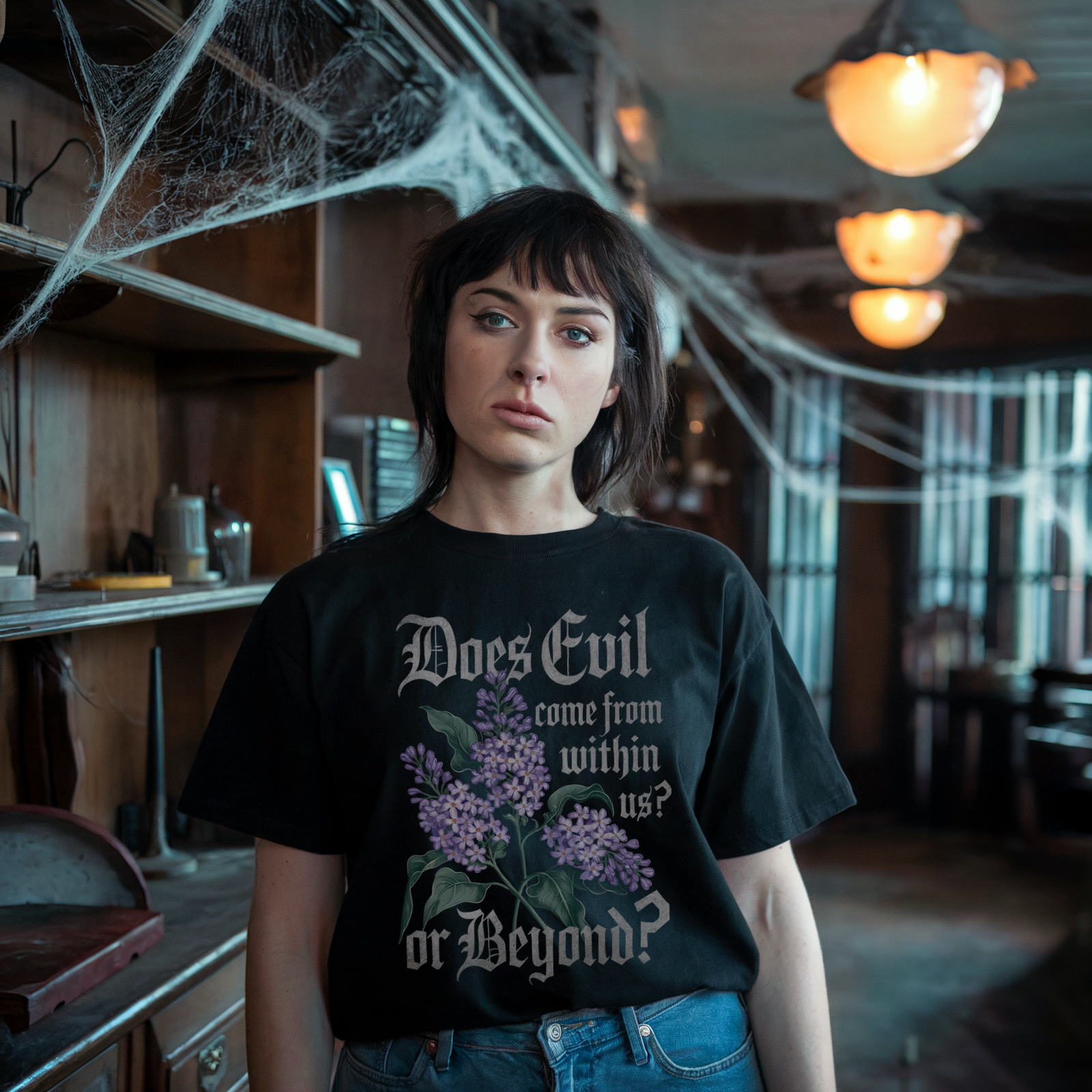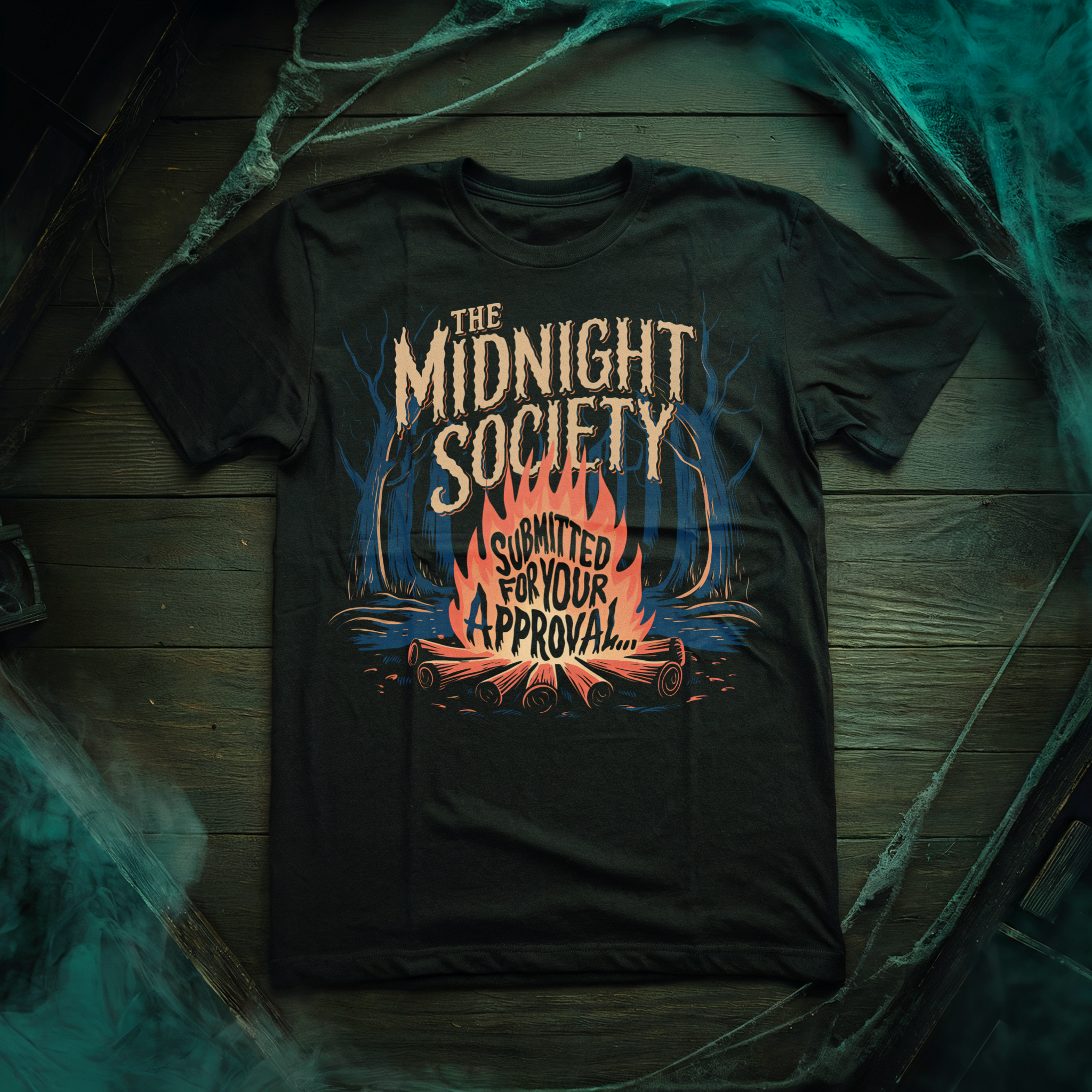When it comes to the weird and wonderful world of SpectreVision, it’s hard not to think about the production company’s extraordinary resume of films: A Girl Walks Home Alone At Night, Color Out Of Space, Daniel Isn’t Real, Mandy, and so much more. Founded by directors Daniel Noah and Josh Waller and actor Elijah Wood in 2010, the SpectreVision we know and admire today has curated a special selection of genre releases over the last decade.
While the company continues to expand in reach and influence, it’s important to recognize the many talented people behind the company’s success and one of those people is Lisa Whalen. As a partner and CEO of SpectreVision, she has contributed in producing some of the most important pieces of modern horror. Whalen kindly shared some insight into her incredible career with me as well as what makes SpectreVision special and the best part about her job, all with spectacular charm.
“[…] it used to be a problem, that we were so outside the box, now everybody’s trying to get out of the box.”
Jessica Rose For Nightmare On Film Street: Being the CEO of SpectreVision is, for lack of a better word, inspiring. I can’t think of anything else less cliche to say about that. Would you tell me a little bit about your journey? How did you become affiliated with SpectreVision? What was your professional career like before that?
Lisa Whalen: Before this, I was in corporate. I worked in TV on the executive side, doing research, scheduling and strategy. I was in New York, which is fast-paced, doing TV stuff, crunching numbers. It wasn’t in a creative space at all like I am now. I was on the periphery at NBC Universal Network, they’re called Chiller, who was making a movie with SpectreVision called The Boy with Rainn Wilson (The Office) and with the executive that was on it, there had been some missteps or some changes.
I was essentially sent out to a film festival to make it up to the guys, to make it up to the SpectreVision partners at the time. I just had to play nice and apologize and make them love us again. That was how I got to know them, as the corporate person from this group that they hated because they were having trouble with the financing. Luckily, we were able to become friends after that. A year or so later, when I was leaving NBC, they just said, “Would you come work for us?” and I said, “No. That’s a very nice offer, but I don’t like L.A. I’m pregnant and I’m not going to move across the country.” They are incredibly charming and after some attempts I said I would consult for them and I did this whole thing and I put all this work together and they were like, “Oh, great!” They were so sweet. The three of them sat down and they listened to me talk for hours about what I thought they should do and how they should restructure the company. At the end of it, they just go, “This is all great. We can’t do any of this. Come work for us.”
I was very flattered. Eventually I came over and I started working for them and I think I was initially hired as the COO and within a couple months we realized my position was really more CEO and then a couple of months after that, I became a full partner in the company.
NOFS: That’s amazing. That’s so great. You did your initial job, to go there and smooth things over, so well that you are where you are now!
LW: Exactly. I’m basically a charm factory.
NOFS: I believe there’s so much more to it than that [but] that is really funny that that’s how it started. I like that. Did you wind up ever doing any of the things that you proposed to them?
LW: Yeah, we’ve actually done almost all of them. They would have no idea. I actually should ask them that. They don’t realize it, but we’ve actually done every one of the things that I suggested.
NOFS: Incredible. What is it that you think makes SpectreVision so special? In terms of genre, especially now, it seems like it’s gaining a whole lot of traction, producing all these movies that we love. What makes it so different?
LW: What’s nice about SpectreVision is that there is a real sincerity behind what we’re doing in the sense [that] this is what we want to see and it’s what we’re passionate about. We’re not jumping on a trend. We’ve been here for years just doing the same thing and it feels like the industry has kind of evolved around us. I was telling them initially, when I first came on, being niche and being cult is great, but it’s hard to run a business like that. Now what we’re finding is that being niche , being cult, and being unique, it used to be something that made you have to stay on the periphery of the industry. Now people are looking to that periphery, because there’s so much content out there, they need something unique so they can stand out. Where it used to be a problem, that we were so outside the box, now everybody’s trying to get out of the box. Now, they’re approaching us. I think they’d like it maybe if we were slightly less weird, but you know…
“For anyone who wants to get into film production, you need to think about everything that you’re good at, all of the different skills, and focus on those and structure your life and your journey around those skills.“
NOFS: Never stop, never ever stop. It’s funny that what someone would think is a challenge is not really a challenge. What would be a challenge, being weird and niche, is actually everyone’s biggest strength at SpectreVision. Do you find there is anything challenging for you as a professional, as a woman, especially in this industry?
LW: You know, one thing I’ll say is I don’t have any issues fighting for myself or anything. I’m a rather strong person, a strong, very confident person. It is funny how there are things that I’ve seen men do, that if I did them, I’d feel ashamed. Like just “The balls on you!”, literally. Just really putting themselves out there, like, “Well, that was just a shameful grab at something. He didn’t earn that.”
There’s more things that I’ve seen people do, they tend to be men, where it’s like, “Man, I wouldn’t do that!” But when I see it done, I think, “Why shouldn’t I? Why shouldn’t I be doing that?” So I don’t think there’s anything necessarily that I’m finding a hard time because I’m a woman, being a woman makes me view how I manage through a different lens.
It makes me think, “Should I be more strong in this area or that area? Should I be doing things that way or this way?” So I’m questioning things because of gender, but I don’t think I’m doing anything differently because I’m a woman or have things harder. I think everybody has different struggles, no matter what they are or who they are.
NOFS: Absolutely. That’s really good to hear. You don’t have to have a tragic story or go through major hardships to struggle.
LW: Everybody’s got tragedy, rich white men have tragedy. It’s all perspective.
NOFS: On a lighter note, what is the best part about your job?
LW: The people. The people I work with are wonderful and they are ridiculous and passionate and smart. They’re so smart. Some of them absolutely drive me up a wall, but it’s the best. It’s like, why does John love Garfield? He’s the most interesting thing about his life. He’s a real troublemaker, but who wants to read a comic strip about John? They just want to read about Garfield because he’s the fun one.
NOFS: That’s great! We seldom hear about the people we work with being the highlight. It’s important to enjoy the people you work around and with. What about what you all have coming up? Could you share anything about what’s coming out next for SpectreVision? Is there anything in the works or anything that you can discuss coming up?
LW: We have two feature film projects that are moving forward at some point, whenever we’re allowed to leave our houses again and then a lot of TV, both animated and narrative. I’m really excited about it. I’m excited about all of it, but the TV stuff is going to really make a splash. Having worked in TV for 20 years, you just kind of go, “Oh, that one’s going to work!”
“[…] make the path your own because, in this industry especially, there is no single way to do it.”
NOFS: TV is making such a big comeback. Now, it’s just as popular as cinema is. Speaking to your experience through all of this, what advice would you give to someone who looks to you for leadership in something similar to your career? What kind of guidance would you give to somebody or what kind of advice would you give to them if they’re looking to start a career in film production? You can only learn from the best.
LW: For anyone who wants to get into film production, you need to think about everything that you’re good at, all of the different skills, and focus on those and structure your life and your journey around those skills. If you’re not good at returning emails or keeping a schedule, you have to create a system for that. Create your system around whatever you are good at. If you’re really good at writing or you’re really good at charming people in the room, then get yourself in a room. Structure your path and your career around what you’re good at and recognize what you’re bad at so you can make up for it. Don’t let it bring you down. Just structure things so that your strengths are shining and don’t try to feel like you need to follow anyone’s path, specifically make the path your own because, in this industry especially, there is no single way to do it.
What’s your favorite SpectreVision movie? Share your pick, and your thoughts on Lisa Whalen’s inspiring words, with us over on Twitter, in the Nightmare on Film Street Subreddit, and on Facebook in the Horror Movie Fiend Club!
![color out of space hp lovecraft 2019 [Exclusive Interview] SpectreVision CEO Lisa Whalen Talks Genre Film Production Outside The Box 11 color out of space hp lovecraft 2019](https://nofspodcast.com/wp-content/uploads/2019/09/color_out_of_space_hp-lovecraft-2019.jpg)





![mandy 2018 riseborough [Exclusive Interview] SpectreVision CEO Lisa Whalen Talks Genre Film Production Outside The Box 10 mandy 2018 riseborough](https://nofspodcast.com/wp-content/uploads/2020/04/mandy-2018-riseborough.jpg)



